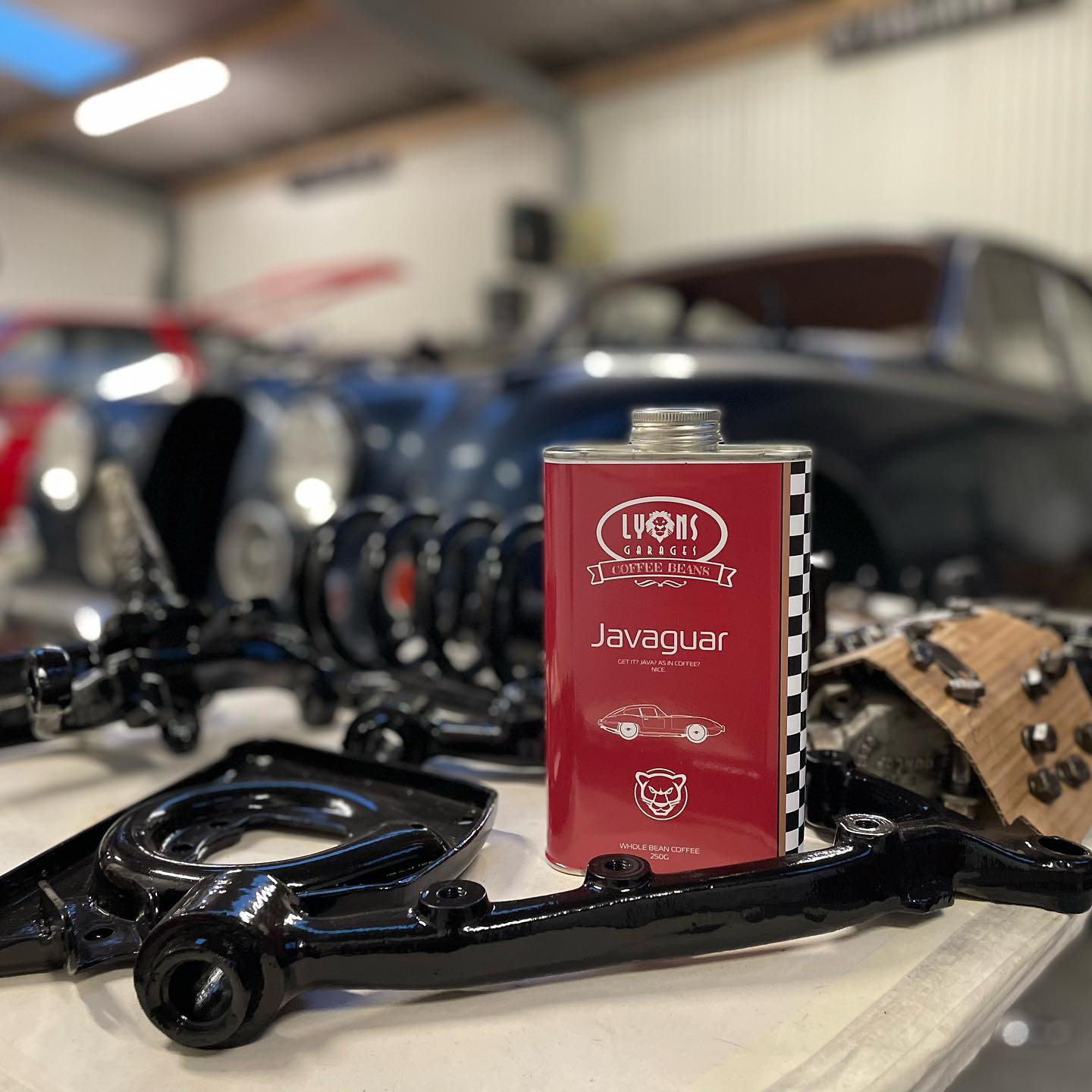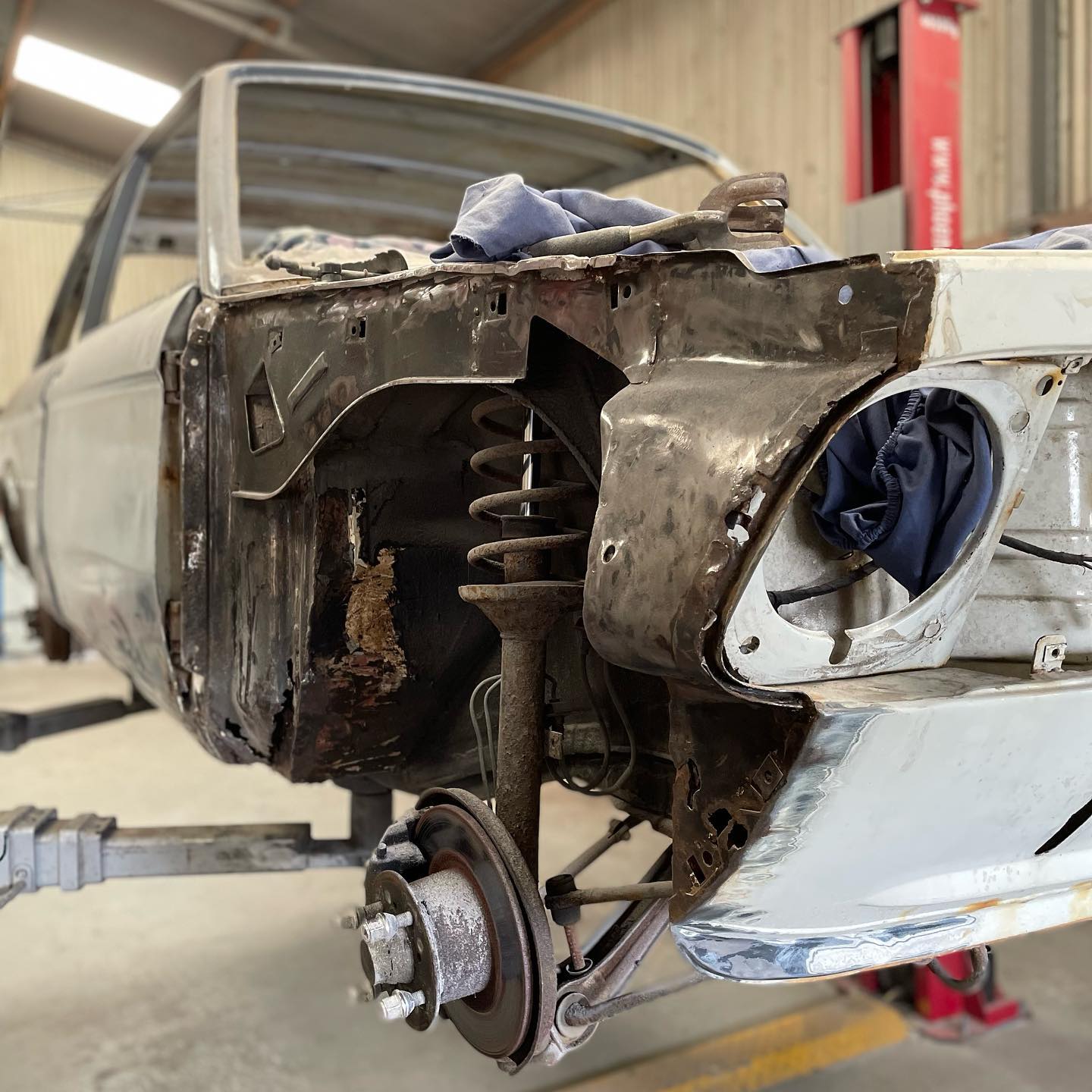Hi.Sorry, it’s been so long. That’s it, that’s my apology! To be fair, it’s a two-way street and it’s not like you bothered to write to me so let’s agree to move on and talk about some cars now....

Hi.
Sorry, it’s been so long. That’s it, that’s my apology! To be fair, it’s a two-way street and it’s not like you bothered to write to me so let’s agree to move on and talk about some cars now. It was an email during the week asking about a Cars and Coffee event which made me realise I hadn’t updated the blog in almost a year. Mad.
Where have you been? What have you been up to? Many news? No? Ok. Us on the other hand, I mean wow, what haven’t we done! Well, not much. You’d be surprised how long it takes to restore some cars. The time really doth fly.
Just looking at what I wrote the last time… “The country is almost back” – I wasn’t completely wrong, it’s just now it’s a little bit more like the country is almost backwards. (I’m very good with words amn’t I? “Write more things” you say, “I don’t get paid enough” I reply.
Is it just me or has the service industry in Ireland gone to the dogs? I’m convinced that the poor levels of customer service around the place is a side effect of all the vaccinations. But that’s someone else’s problem to solve and I’ll get over waiting 5 hours for someone to take my food order. My main problem is with the car industry – it’s an absolute nightmare when it comes to hiring skilled people. Where have they all gone?

Here at LG HQ on the Spanish Point Riviera where we have a waiting list of over 6 months – 1 year for restorations, the demand for quality classic cars has never been higher. However, the availability of quality skilled people needed to be able to carry out the necessary work has never been smaller.
“The heritage skills required to maintain these vehicles, which in the past have gone down from one generation to the next, are at risk of being lost. Not enough of the necessary knowledge and skills are being passed on to the young enthusiasts coming through.
The historic vehicle industry has grown significantly and is now worth more than £5.5billion in the UK, and although staff numbers have risen to 34,900, their average age is 42. Estimates suggest the sector needs at least 150 new apprentices a year for the next five years to survive, with 40 per cent of employers saying they’re struggling to find qualified staff.” https://www.autoexpress.co.uk/car-news/102958/classic-car-restoration-new-course-teaches-the-art-of-caring-for-classics
“FIVA, the international federation dedicated to historic vehicles, is warning of a global skills shortage that could see some of the most iconic vehicles in history lost unless new blood is introduced to the restoration industry, with specialist training urgently needed to avoid vital skills dying out.
That was the main conclusion reached at a FIVA-supported international symposium in Bucharest on July 24th 2021.” https://classicsworld.co.uk/news/classic-skills-shortage/
While the problem of a lack of skilled people to work on classic cars has been something we’ve seen for a few years now, it seems like garages and main dealers that deal with the more modren (modren, not modern) cars are starting to struggle as well. The young ‘uns just aren’t going down the route of apprenticeships anymore. Hard to blame them, the pay is shocking, I think electricians get paid more for their apprenticeship? This is even more shocking (heh, puns) when you realise that very soon most cars being serviced will be all-electric.
Is the drive there to encourage people to get into motor mechanics and panel beating, I’m not sure, to be honest. (Is the drive there… did you see what I did there?) This time last year we embarked on a journey with some government agencies to set up a Classic Car Training Academy here in the west of Ireland, but alas it was not to be. The course book is now just gathering dust on the shelf here… which reminds me, the cleaner is due in.
Anyway, that's our sad story – it is, in the words of myself, very sad. If you want to read some more about how what the UK is doing to solve this problem, I’ll copy and paste the article below.
Right, apart from all that, we have been up to plenty! A Porsche Boxster S was added to the team, and my pockets are suddenly lighter from all the parts bought… the price of a Porsche keyring is scandalous, to be honest with you, scandalous. New BC Racing coil overs, new brakes, suspension refresh, lights, full service, a door lock, and hours upon hours of polishing have left this car looking fantastic. It will be for sale soon, so if you’re interested in a 2001 Boxster (priest’s car, nobody ever sat in the back, non-smoker, etc) get in touch!

A Sunbeam has come and gone, as have a few MG Bs and Midgets. There’s a BMW 2002 here at the minute - we can finally see some light at the end of the welding tunnel TG. MG As, Morris Minors, Mercs, and some more have all passed through the doors in the last while. Even more exciting is that parts have begun to arrive for a Datsun Z resto-mod we’re going to be building.
Ok pals, with all this talk of the rising costs of living and people having less disposable income to spend, it looks like I’m going to have to actually do some work now.
BuY sOmE cOfFeE
It’s about time you supported your local business, people are beginning to talk and they’re saying you’re awful tight altogether. And the beans will be going out of date soon so we’ll have to flog them before that. Lel.
If you’ve any thoughts, feedback, ideas, or anything at all, give us a shout on info@lyonsgarages.com Follow us on Facebook, Instagram, LinkedIn, and we're winging it on TikTok as well.
Gotta go, finishing off plans for a classic car centre / hub here and need to concentrate to keep the colouring between the lines.
K thanks see you later bye.
FIVA Warns of Global Skills Shortage
Article from Classics World, August 2021.
FIVA, the international federation dedicated to historic vehicles, is warning of a global skills shortage that could see some of the most iconic vehicles in history lost unless new blood is introduced to the restoration industry, with specialist training urgently needed to avoid vital skills dying out.
That was the main conclusion reached at a FIVA-supported international symposium in Bucharest on July 24. Hosted by Retromobil Club Romania, ‘Restoration – Art or Science?’ saw a succession of world-renowned authorities address guests from 10 countries, with the event also streamed online to thousands worldwide.
Speakers included Stéphane Guarato and Arthur Morault, who explained how a lack of skilled labour means some car enthusiasts are waiting three years for work to begin on their classics. The pair run the Conservatoire National des Véhicules Anciens near Paris, where students gain experience in basic restoration techniques before going on to specialist training. Stéphane and Arthur feel that the increasing gap between the skills needed for modern car repairs and those needed for historic restoration is part of the problem, as is the difficulty to attract young people to the industry, Currently, half of their 150 students are around 60 years old.
In addition, Michel Lamoureux, principal advisor for a historic vehicle restoration training programme that is set to begin in Canada from September 2022, warned that the next generation of fledgling specialists remains alarmingly small given the urgent need for their skills in a worldwide industry worth billions of dollars.
FIVA president Tiddo Bresters described the skills shortage as an “existential challenge” for the future of classic motoring: “This is one of FIVA’s primary objectives – to foster the preservation of historic vehicles and pass them on in working condition to future generations,” he stated.

UK leading the way
Critics will no doubt feel that FIVA’s call to action has come rather late. In the UK, the classic car community has long been concerned about a lack of suitably skilled mechanics and restorers entering the sector, and has been very positive in doing something about it.
Until recently, the industry relied on the legacy of engineers and craftspeople trained in the 50s, 60s and 70s, meaning it fell off the radar for potential new blood and any training available was of little relevance.
Realising this, the Federation of British Historic Vehicle Clubs’ Karl Carter and Francis Galashan of the FBHVC-backed Federation Skills Trust were instrumental in introducing a classic vehicle restoration course in 2014, and in 2015 Rolls-Royce specialist P&A Wood selected the then-new Heritage Skills Academy (HSA) to recruit eight apprentices and deliver a bespoke training programme. This all led to the FBHVC and HSA joining forces to develop a Classic Vehicle Training Academy at Bicester Heritage in 2017, which has since gone from strength to strength.
Very few countries can boast a state-funded scheme for this kind of apprenticeship, but the UK has been able to take significant advantage. Growth was inevitably blunted slightly by the pandemic but there has been an impressive rise from 70 apprentices last year to 110 currently, with another 36 starting in September and more to come as a number of employers already involved look to take on a second or even a third apprentice. Ages range from 16-59, but the major are aged 19-25.
What’s more, there’s been an expansion into a second premises at Brooklands Museum this year, with four groups based at the Surrey venue and seven at Bicester. Three groups are currently on the new coachbuilding course launched last year, with the remainder on the mechanical course.
The HSA’s success lies in having a structured, consistent model that is proven to work. “We’ve identified the problem, we’ve convinced the industry we’ve got a solution, we’ve developed a programme that they have had input into, we’ve delivered it and we’ve gained the confidence of all the big players in the UK industry,” said HSA Managing Director, John Pitchforth. “We’ve also attracted notice from America, France, Belgium, Switzerland and Norway, all of whom have come over to look at what we do. We welcome working with anybody.

“The UK is pretty much a world leader in what we do, but we’re not just about the historic side; we also about adopting modern technologies and green technologies. We want to be part of the green solution, not part of the problem.”
Momentum has built steadily elsewhere in the UK too. The Association of Heritage Engineers (AoHE) was founded by Dominic Taylor-Lane three-and-a-half years ago to promote, support and facilitate a cascading of skills and experience from across the heritage sector to a new generation. It has recently broadened that aim with the creation of its Sustainable Skills Network, which aims to demonstrate how the industry has the transferable skills to go beyond the historic vehicle sector and create a genuinely sustainable repair-based future.
We also look forward to seeing what the newly-formed Historic & Classic Vehicles Alliance (HCVA) can achieve in its aim to preserve skills by encouraging the sector to reach out to younger people and excite them about the prospects of joining the industry.
While there is still a long way to go to ensure vital skills are not lost, there are a host of positive signs. As the likes of the HSA have proven, we’re doing a very good of fostering a new culture around restoration skills, and if that can extend globally, it can only be good for keeping our treasured classics on the road.














